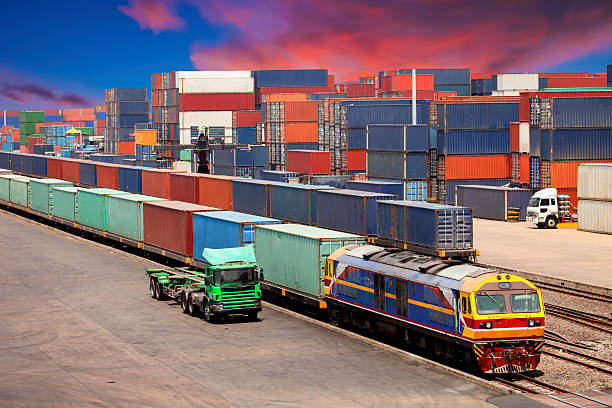Here are some of the top supply chain news stories happening right now.
As of April 2024, the Consortia Block Exemption Regulation (CBER) will be discontinued. Earlier this month, the European Commission announced that it would not be renewing the exemption, which was introduced in 2009. The CBER allowed shipping companies to coordinate vessel-sharing agreements and pool capacity, but the EC feels that it no longer fulfils “the criteria of effectiveness, efficiency and EU added value.”
After April 2024, the liner shipping alliances who service European trades will fall under the EC’s general competition rules, and Global Shippers Forum director James Hookham states that “this is welcome news.” From his perspective, the new rules don’t mean an end to consortiums, but they do mean lines will have to be more transparent and “consistent with policies for all other sectors.”
In general, shippers are happy with the change, although they do realize it will mean several adjustments and some uncertainty.
Our take: The European Commission has justified this decision by stating that the CBER no longer meets the criteria of effectiveness, efficiency, and EU-added value. This suggests that the exemption was not serving its intended purpose as effectively as expected. In general, shippers are pleased with this change. However, they also acknowledge that it will require adjustments and may introduce some uncertainty into the industry.
Read more here.
Cargo theft is on the rise, and trucking carriers are being warned to stay on guard. CargoNet, a firm that tracks cargo theft, released a report stating there were 582 events of theft across the US and Canada in the second quarter of 2023, totaling more than $44 million. This is a 57% increase over the same period in 2022.
The methodology behind the theft is based on the use of stolen motor carrier and broker identities. These are used to obtain outgoing shipments and then misdirect them. Another method is conversion schemes where groups get shipments from brokers and then tack on extra fees — often exorbitant — for fictitious reasons like overweight tickets or rate penalties. CargoNet feels that the increase in theft can be attributed to the rising cost of goods such as food and beverage items, household items, and electronics. The thefts are most common in California, Texas, Florida, and Illinois.
Our take: The increase in cargo theft can be attributed to the rising cost of goods. High-value items such as food and beverages and electronics are particularly vulnerable. As these goods become more expensive, they become more attractive targets for thieves. Working with partners who can provide accurate track and trace reporting is one way to be alerted to problems.
Read more here.
Analysts are predicting that the freight market may not turn around until 2025. New U.S. economic data points to rising interest rates, reduced consumer spending, stubbornly high inventory rates, and overcapacity in the freight industry as factors. Profits are declining for carriers, and the weak freight market is understandably also having an impact on shippers and warehouse operators.
A bright spot in analysts’ prediction, however, is that the U.S. economy will not fall into a recession this year. Instead, growth will be slow: S&P Global forecasts the nation’s GDP will grow by 2.3% this year, and may only top 1.5% in 2024. And some experts are predicting what we are already seeing… a very average peak season at best.
Our take: Importers need to make sure their rates are in line with where the market is at right now. But, be wary as many carriers are actively attempting to pull back capacity and otherwise bolster rates.
Read more here.



